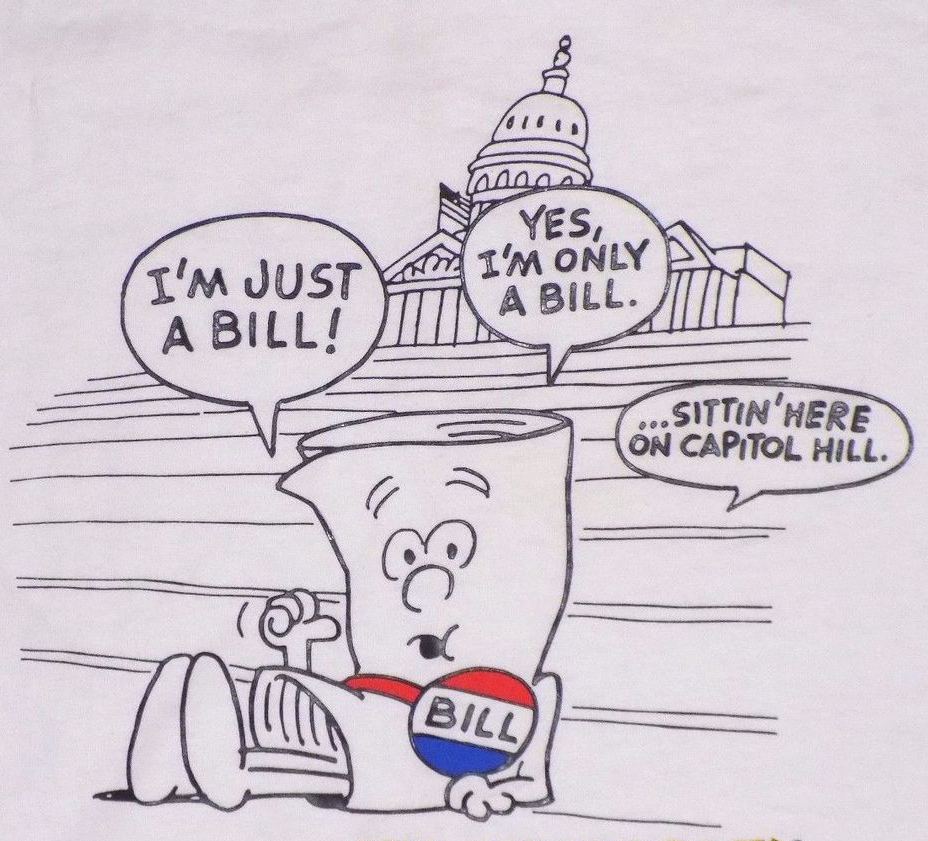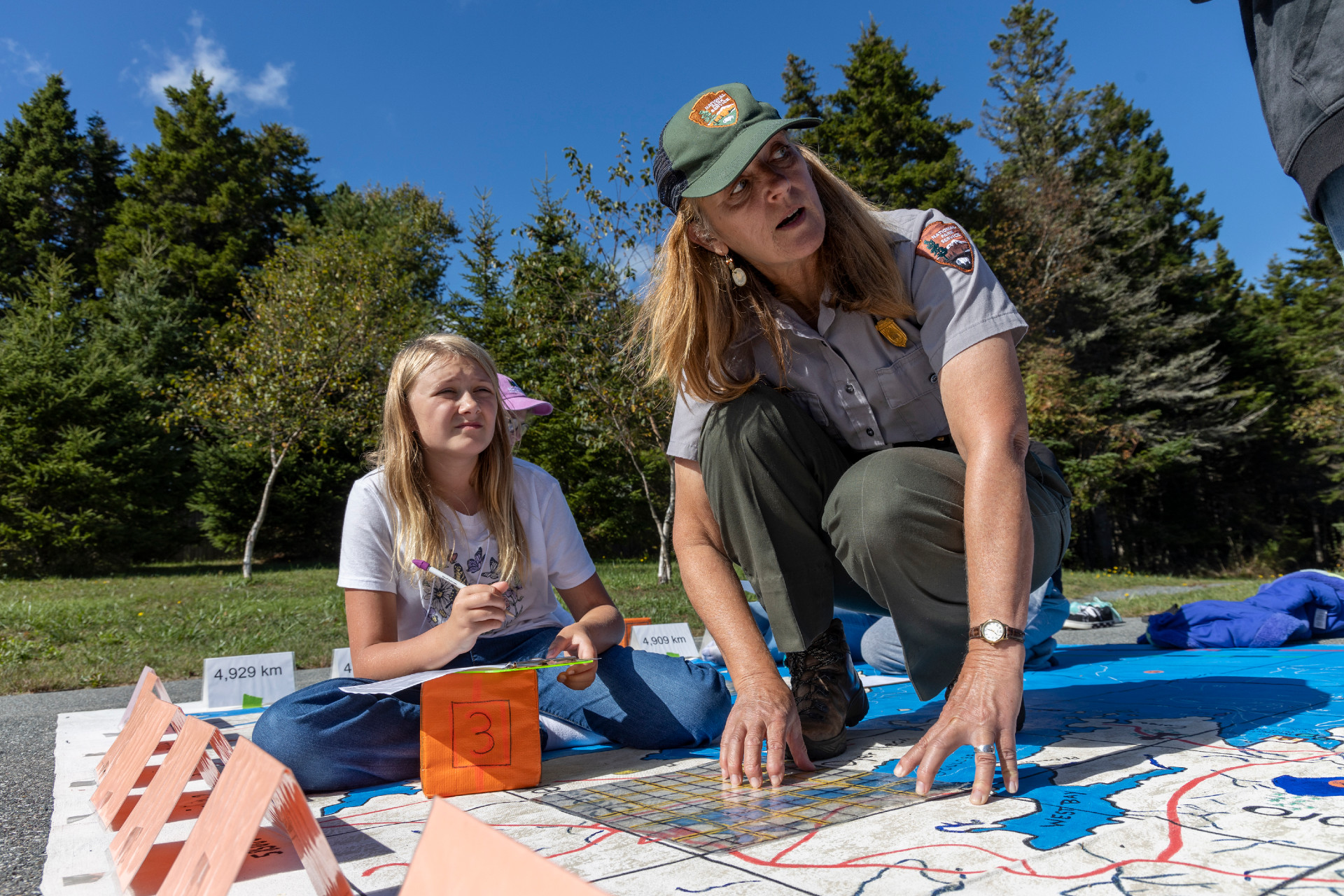Anatomy of a Government Shutdown
The Disruptive Effects of Up-to-the-Deadline Budgeting
March 6th, 2024
The Disruptive Effects of Up-to-the-Deadline Budgeting
March 6th, 2024
BY STEPHANIE CLEMENT
Many of us raised in the 1970s think fondly of the Schoolhouse Rock animated short educational videos that aired during Saturday morning cartoons. A favorite was the song “I’m just a bill,” where a scroll of paper—a bill—is discovered on the steps of the Capitol, and he relates to a young person the process by which a bill becomes a law.
While the process remains the same, perhaps we need a more nuanced version of the song to teach kids about the modern realities of continuing resolutions, government shutdowns, and political wrangling.
Congress has until October 1, the beginning of the new fiscal year (FY), to pass appropriations bills that fund federal agencies. If they don’t make the deadline, federal agencies that are not funded will shut down. Alternatively, Congress can pass a continuing resolution (CR) specifying agency activities that are funded, the length of time for which the CR applies, and the rates or funding levels at which agencies can spend.
According to the Congressional Research Service, there have only been three years since FY 1977 where Congress and the President have successfully managed to pass and approve all
appropriations bills.
Continuing resolutions seem to be the new normal. Negotiations among lawmakers about appropriations bills or the details of CRs frequently carry right up to the deadline for funding to run out, causing great disruption of agency activities, including at Acadia and other national parks, as employees prepare for potential shutdowns.

Just days before each shutdown, park superintendents and senior managers must decipher national guidance or “contingency plans,” make decisions at the local level about which staff will be asked to continue working, and communicate with partners, contractors, and the visiting
public what to expect.
Park staff are given just a few hours to wrap up their job duties, sign off from e-mail, and then face an uncertain time without a paycheck. The only good news is that under the Government Employee Fair Treatment Act of 2019 (P.L. 116-1), they must be paid in full once the shutdown concludes, but that also creates inequities, as some employees worked during the shutdown and others were sent home.
Government shutdowns can have negative effects on facilities, research projects, hiring, and contracts. Water leaks or building damage may not be noticed as quickly if staff are not working. Field work ceases, which is especially difficult for research projects with specific research windows. Hiring is delayed, which can create challenges for parks in preparing for their busy visitor seasons. The issuance of contracts is also stopped, which causes delays in on-the-ground projects, perhaps leading to more deferred maintenance. And when the shutdown concludes, it takes time for staff to re-engage with work, reschedule meetings, pay the bills, and assess new
funding levels/budgets.

Viski Iski, Acadia National Park education technician, helps sixth graders from Hancock Grammar School during the Schoodic Education Adventure program. (Photo by Lily LaRegina)
Federal contingency plans for government shutdowns may be updated periodically as administrations in Washington change. The contingency plan released last fall prior to the potential October 1 shutdown was concerning to Friends of Acadia because it requested that areas such as roads, campgrounds, and trails that are generally not closed overnight be left open and accessible to the public.
Also, concessions and commercial services in leased facilities that did not require NPS resources to operate would have continued. A porous park like Acadia, with many entrances and exits, would have essentially been required to remain open, but with only a skeleton staff for the provision of critical health and safety purposes.
Visitation would have continued at great rates, but with no visitor information services, fee collection, traffic management, or natural and cultural resource protection.
Friends of Acadia reached out to Secretary of the Interior Deb Haaland to share our thoughts and recommend changes.
We shared that we thought it was unfair that commercial services would likely have continued in the park, but partners such as the Schoodic Institute and Downeast Transportation might have to close because they operate under cooperative agreements and receive funding from the National Park Service.
Middle-school children would have been denied their multiday, in-depth outdoor education experiences taught by NPS rangers at the Schoodic Education Adventure, but tourists would have been allowed to continue recreating unabated.
We supported the idea that park partners (e.g. states or nonprofits) could keep parks open with funding, but only if all park operations were funded.
The Hill reports that the federal government has experienced at least a partial government shutdown 21 times since FY 1977. The length of these shutdowns has varied, with the longest one in recent memory occurring for 35 days, from December 2018 to January 2019.
While continuing resolutions are helpful as stop-gap measures to avoid government shutdowns, they are also problematic because funding for significant programs is released gradually or up to a certain percentage until the full Department of the Interior appropriations bill passes or last year’s appropriation levels are reached.
Acadia and other national parks submit projects to these programs several years in advance and compete at the national level for funding. If that funding is not fully released until six months into the fiscal year, national parks may not be able to execute big projects because the timeframe for executing contracts has been compressed and contracting staff are in high demand. Acadia’s workplan gets thrown into chaos.
Acadia faces many uncertainties—from large storms to travel trends to continuing resolutions or government shutdowns.
Let’s hope that little scroll of paper sitting on the Capitol Hill steps in future years makes it through the budget process in a timely fashion.
Sing with me…
“Well, now I’m stuck in Committee, and I’ll sit here and wait, while a few key Congressmen discuss and debate whether they should let me be a law. How, I hope and pray that they will, but today I am still just a bill…”
STEPHANIE CLEMENT is Friends of Acadia’s Vice President of Conservation.